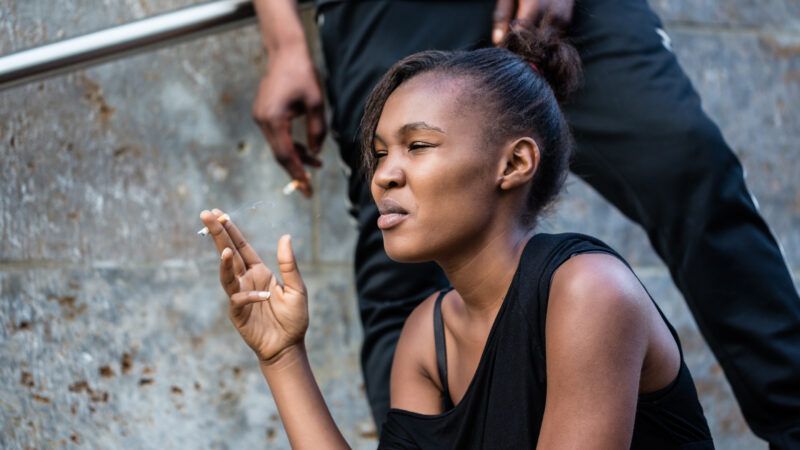D.C. Council's Ban on Flavored Tobacco Products Is a License for More Over-Policing of Minorities
Legislators cannot have it both ways.

The D.C. Council on Wednesday voted to ban flavored e-cigarettes, menthol cigarettes, and flavored cigars, ratcheting up the drug war as they create another black market in the District of Columbia.
This tobacco ban follows Washington, D.C.'s legalization of recreational marijuana and the quasi-decriminalization of psychedelics. Notably, those latter two policies were approved by voter ballot initiatives and were not passed by the D.C. Council.
While the D.C. Democratic Party largely supported those measures, many of its most powerful members do not see fit to apply those principles to tobacco use. Every member of the Council is a Democrat, with the exception of two at-large councilmembers, who are Independents. The new tobacco prohibition bill passed 9–3.
The vote follows hot on the heels of a viral incident this past weekend in Ocean City, Maryland, where police officers were seen tasing and beating teens after confronting them for violating an anti-vaping ordinance. The videos served as a reminder of why ending the drug war is so important: The government enforces every law at gunpoint, even those intended to "protect" our health. Readers may recall that Eric Garner was choked and killed by former New York City Police officer Daniel Pantaleo in 2014 for selling loose cigarettes.
Yet these tobacco proposals are marketed as helping people like Garner, who was black. The FDA "agrees to ban menthol to protect African Americans," reads a headline from The American Medical Association. Between 77–88 percent of black smokers opt for menthol. Yet there is no way to "protect" them from menthol without putting them at the mercy of police officers.
D.C.'s bill officially gives enforcement jurisdiction to the District's Department of Consumer and Regulatory Affairs. But as the local radio station WTOP points out, the police department "normally take[s] enforcement upon itself to make sure the law is followed."
The ongoing battle over tobacco regulation is a microcosm of the incoherency of the progressive public health movement: Activists and politicians decry over-policing, particularly when it comes to minority communities, then advocate for and pass laws that lead to over-policing of minority communities.
Not everyone on the council was convinced. "What we have seen, generally, is where there are prohibitions, there are problems that come with it, and that is what I see here," said Chairman Phil Mendelson. "I can illustrate it this way: We as a council made it increasingly easier to smoke marijuana, but increasingly more difficult to smoke tobacco. There is a contradiction there, and I don't support that contradiction."
He added that "there are other approaches that can promote the public health." He is correct, but D.C.'s bill also bans some of those options. Data have consistently shown that e-cigarettes help people stop smoking cigarettes, but they, too, have become a target for legislators across the country. The (unsurprising) conclusion: Cigarette usage has increased following flavored tobacco bans.
Some tobacco control advocates will continue to attempt the well-intentioned balancing act. The Campaign for Tobacco-Free Kids was one of the loudest groups to condemn what happened in Ocean City last weekend: "There is absolutely no place for violence and abuse in enforcing tobacco laws," they wrote on Monday. "Our communities cannot be safe and healthy when police often choose to enforce these laws with violence, often disproportionately against Black and Brown people."
The D.C. Council just passed a type of law that the Campaign fights for nationwide. I assume they consider it a success. But if violently enforcing laws is a dealbreaker for such groups, then perhaps they should reconsider supporting them in the first place.


Show Comments (36)